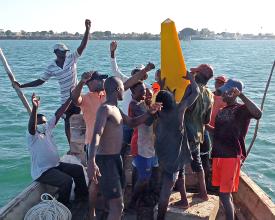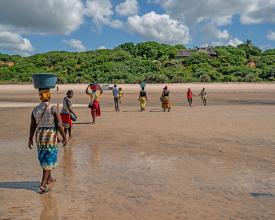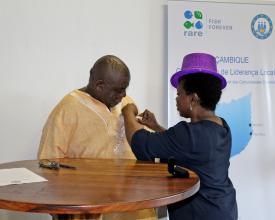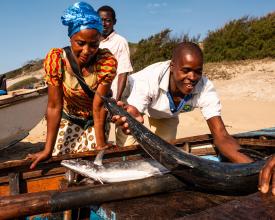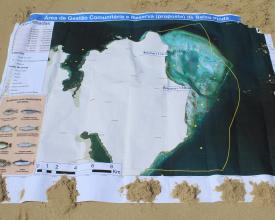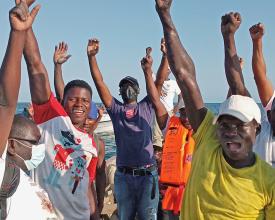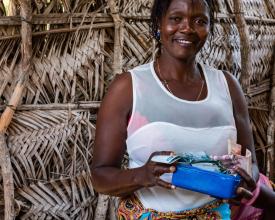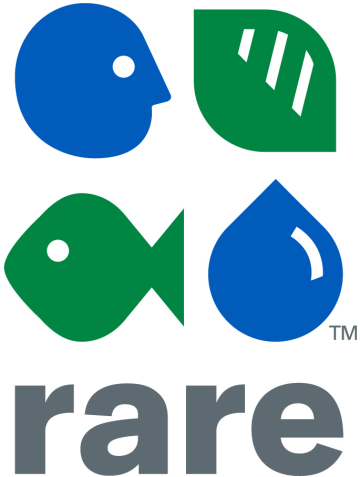
Réseau d'aires marines protégées gérées par la communauté pour la pêche côtière à petite échelle au Mozambique
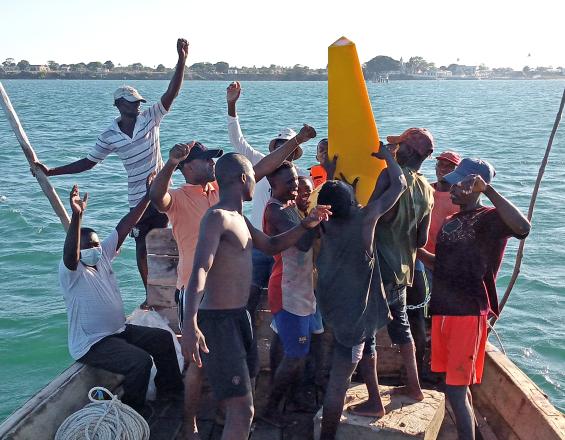
Le programme Fish Forever de Rare permet aux communautés côtières de gérer durablement les pêcheries côtières. Au Mozambique, une biodiversité importante à l'échelle mondiale s'entrecroise avec une forte dépendance à l'égard des pêcheries locales pour la sécurité alimentaire, les moyens de subsistance ruraux et l'adaptation au changement climatique. Rare Mozambique a travaillé avec six communautés pour façonner la trajectoire de la cogestion communautaire des pêcheries côtières et pour intégrer des réserves entièrement protégées et des zones d'accès gérées par les communautés dans le cadre de gestion national.
Contexte
Défis à relever
Au Mozambique, une biodiversité importante à l'échelle mondiale est associée à une forte dépendance à l'égard des pêcheries locales pour la sécurité alimentaire et les moyens de subsistance des populations rurales.
Malheureusement, la surpêche et les techniques de pêche destructrices ont réduit les prises de poissons et dégradé les écosystèmes. Les données nationales montrent que les débarquements de poissons et la taille globale des prises sont en baisse, les petits pêcheurs signalant que certaines espèces ne se retrouvent plus dans leurs filets. On estime que l'ensemble des prises artisanales a diminué de près de 30 % au cours des 25 dernières années. Le changement climatique risque d'aggraver ce problème, car les côtes du Mozambique sont vulnérables aux cyclones, aux ondes de tempête et aux inondations.
Emplacement
Traiter
Résumé du processus
Ensemble, ces éléments forment une boucle de rétroaction constante qui se renforce mutuellement. Une politique d'habilitation ouvre la voie à la conception et à la mise en œuvre légalement sanctionnée des plans de cogestion de la ZGC+R. Ceux-ci, à leur tour, dépendent de données fiables pour la prise de décision qui permet aux communautés et aux gouvernements locaux de concevoir des plans de gestion efficaces et de s'adapter à l'évolution des conditions. Les campagnes d'adoption de comportements sont le moteur qui dirige ce navire en établissant le soutien de la communauté à la pêche durable, en créant une dynamique d'action et en engageant les dirigeants locaux à chaque étape. Enfin, notre travail d'inclusion financière, qui constitue une étape cruciale, s'intéresse aux facteurs économiques critiques qui influencent la prise de décision en matière de pêche et crée les conditions dans lesquelles les communautés de pêcheurs peuvent se permettre de changer de comportement, d'agir sur la base de décisions fondées sur des données et de tirer parti d'une politique qui confie la gestion des ressources naturelles à la communauté.
Blocs de construction
Politique d'habilitation
La politique d'habilitation établit les conditions qui rendent la cogestion de la pêche légale, la conception de zones "d'accès géré" avec des réservoirs d'interdiction de capture, et la gestion basée sur les données fonctionnelle.
Facteurs favorables
Cet élément constitutif nécessite des relations avec le gouvernement à plusieurs échelles, y compris au niveau national, provincial et du district. Elle nécessite également des relations avec les institutions communautaires dont les contributions peuvent définir les priorités politiques et dont la fonctionnalité démontre la valeur pour les décideurs au sein du gouvernement. Enfin, la mise en œuvre d'une politique dépend d'une stratégie politique clairement définie qui identifie les objectifs clés, les solutions fondées sur des données probantes, les parties prenantes qui seront les plus touchées par les changements de politique et celles qui sont les mieux placées pour défendre et mettre en œuvre le changement.
Leçon apprise
Les changements de politique sont lents, et Rare a appris que les processus gouvernementaux fonctionnent souvent selon leur propre calendrier, indépendamment des plans de projet. Cela vaut pour l'élaboration de documents politiques, l'adoption de lois et l'approbation de plans et de propositions. Dans tous les cas, Rare a constaté qu'un engagement constant et régulier avec les partenaires gouvernementaux était essentiel pour maintenir l'élan. De même, Rare a appris l'importance de travailler simultanément à plusieurs échelles géographiques. Une législation nationale habilitante est essentielle pour une gestion efficace, mais elle est insuffisante pour une mise en œuvre significative. Pour cela, les politiques des provinces et des districts sont nécessaires, y compris l'allocation de budgets locaux, les procédures des agences de mise en œuvre et le soutien actif des élus locaux. Enfin, nous avons constaté qu'une approche adaptative du travail politique est la stratégie la plus efficace. Les priorités du gouvernement peuvent changer rapidement lorsque les élections et les nominations amènent de nouveaux décideurs dans la conversation, et lorsque les circonstances exigent l'attention immédiate du gouvernement.
Réseaux CMA+R
Les zones d'accès et de réserve gérées par les communautés (CMA+R) sont un outil de cogestion spatiale de la pêche dans lequel les communautés et les gouvernements travaillent ensemble pour identifier les endroits où la pêche est restreinte. Les zones d'accès géré permettent aux communautés de fixer des règles et des restrictions en matière de pêche, telles que l'interdiction des engins de pêche destructeurs, l'établissement d'interdictions de pêche saisonnières ou la limitation du nombre de pêcheurs autorisés à pêcher dans la zone ; elles permettent également aux communautés de participer à la surveillance et à l'application de ces règles. Les zones de réserve sont des zones de non-prélèvement où les communautés de pêcheurs acceptent de ne jamais pêcher, protégeant ainsi les habitats essentiels et permettant aux stocks de poissons de se reconstituer. Les deux types de zones protégées fonctionnent ensemble, permettant aux communautés de pêcher de manière durable dans les zones d'AMC adjacentes aux réserves dont l'intégrité écologique alimente la pêche. Les "réseaux" de plusieurs zones CMA+R le long d'un littoral ont le même effet de rétroaction positive sur une zone géographique plus étendue.
Facteurs favorables
Les zones CMA+R doivent être légitimées par des mécanismes juridiques qui rendent explicitement cette approche applicable. Des organes de gestion communautaire fonctionnels et formellement reconnus doivent exister, et ils doivent avoir la capacité institutionnelle de gérer les pêcheries. Enfin, les organes de gestion communautaires et les partenaires gouvernementaux doivent avoir accès à des données précises sur la pêche qui leur permettent de prendre des décisions appropriées fondées sur une compréhension claire du nombre de pêcheurs, de la quantité de poissons capturés, des revenus des pêcheurs et de l'évolution de ces tendances.
Leçon apprise
La conception des CMA+R est un processus complexe qui doit tenir compte de l'impact écologique, social et économique des restrictions de pêche. Rare a constaté que l'utilisation d'un modèle de dispersion des larves aide à déterminer les zones les plus avantageuses d'un point de vue écologique pour la désignation d'une ZGC+R, car la dispersion des larves indique les habitats où les jeunes poissons sont les plus susceptibles de se recruter, de grandir et donc de reconstituer les stocks de pêche. Toutefois, seules des consultations communautaires répétées et des enquêtes approfondies auprès des ménages peuvent révéler les préoccupations sociales et économiques liées à la conception des ZGC+R, ainsi que les connaissances écologiques locales que les modèles larvaires peuvent négliger. Une participation solide de la communauté est absolument essentielle pour établir des limites efficaces que les gens peuvent et veulent soutenir. C'est pourquoi des efforts constants et intentionnels d'engagement communautaire sont essentiels à la réussite de la conception et de la mise en œuvre de CMA+R.
Campagnes d'adoption de comportements
Rare utilise son expertise en marketing social pour concevoir des campagnes d'adoption de comportements, en s'appuyant sur les données des sciences sociales pour encourager les pratiques de pêche durables, renforcer les défenseurs locaux et donner de l'élan aux projets de zones de pêche gérées par les communautés, y compris les réserves marines interdites. Ces campagnes sont adaptées au contexte local et peuvent prendre la forme d'événements célébrant l'importance des pêcheurs, de messages publics par le biais de panneaux d'affichage, de programmes radiophoniques et télévisés, de campagnes de SMS, etc.
Facteurs favorables
Pour que les campagnes d'adoption de comportements soient efficaces, il faut bien comprendre les techniques mises en évidence par la recherche en sciences sociales pour influencer un "coup de pouce", faire évoluer les comportements au sein d'une communauté et instaurer un changement durable. Rare dispose d'un centre de recherche sur le comportement et l'environnement dédié à la compréhension de la science qui sous-tend le changement de comportement, et d'un centre de connaissances dédié à la formation du personnel de Rare à des stratégies concrètes et éprouvées qui peuvent être appliquées à des contextes locaux.
Leçon apprise
Il est essentiel de s'adapter aux contextes locaux, d'où l'importance de disposer d'un personnel de mise en œuvre et de partenaires sur le terrain qui nouent des relations, identifient les dirigeants et les défenseurs de la communauté et donnent un aperçu des types d'activités et de messages susceptibles de trouver un écho auprès d'une communauté donnée. Ces stratégies doivent être adaptables. Lorsque la pandémie de COVID-19 a commencé, il est devenu impossible d'organiser de nombreux événements en personne. En nous adaptant à ces conditions et à l'évolution des restrictions, nous avons pu identifier de nouvelles stratégies qui, dans certains cas, ont permis une sensibilisation encore plus grande et un potentiel d'adoption de comportements : des rassemblements virtuels qui ont permis à un plus grand nombre de personnes d'assister à des événements ; des événements à distance sociale et des défilés en plein air ; et l'utilisation de SMS et de programmes radio pour atteindre des centaines de milliers de Mozambicains vivant sur la côte. Enfin, nous avons tiré d'importantes leçons sur l'importance des dirigeants locaux. L'initiative Coastal 500 de Rare s'appuie sur les engagements des maires et d'autres responsables locaux, les positionnant comme une force motrice pour un changement durable.
Inclusion financière
Même avec tous les autres mécanismes de cogestion en place, les pêcheurs ne peuvent pas adopter des pratiques de pêche durables si leur vulnérabilité économique ne leur permet tout simplement pas de le faire. C'est pourquoi Rare soutient les activités d'inclusion financière. Ces activités comprennent l'octroi de petites subventions aux entreprises communautaires. Certaines d'entre elles constituent des sources de revenus alternatives, comme les boulangeries et l'élevage de poules et d'œufs. D'autres entreprises, comme la transformation du poisson et les services de réfrigération, augmentent les revenus des activités de pêche tout en réduisant la quantité de déchets et de pertes qui privent les pêcheurs de leurs revenus et les communautés de leurs ressources naturelles.
Rare travaille également avec des clubs d'épargne, en fournissant une formation à la culture financière et en créant un cadre social dans lequel ceux qui n'ont pas de compte bancaire peuvent accéder à l'épargne et aux petits prêts soutenus par la communauté.
Ensemble, ces mesures d'inclusion financière augmentent les revenus des ménages et la résilience financière, réduisant ainsi la vulnérabilité des travailleurs de la pêche aux chocs économiques. Cela favorise la pêche durable en permettant aux pêcheurs de prendre des décisions basées sur leurs intérêts à long terme plutôt que sur des pressions financières à court terme qui peuvent conduire à la surpêche.
Facteurs favorables
La cohésion sociale est un facteur clé de l'inclusion financière. Qu'il s'agisse de petites entreprises gérées collectivement par un groupe ou de clubs d'épargne qui dépendent d'une adhésion active et d'une action collective, l'inclusion financière et l'adoption de comportements reposent sur les liens entre les personnes. De même, une mise en œuvre efficace de l'inclusion financière ne peut avoir lieu que lorsque le personnel du programme s'engage auprès des membres de la communauté pour instaurer la confiance, renforcer les capacités locales et résoudre les problèmes lorsqu'ils surviennent.
Leçon apprise
Une leçon importante est que, comme pour beaucoup de choses, l'effort ne suffit pas pour que l'inclusion financière soit une réussite. Le simple fait de fournir un financement de départ aux microentreprises ou de créer un club d'épargne ne conduira pas à un changement financier significatif et durable. Cependant, si ces débuts sont suivis de formations visant à renforcer les capacités et les connaissances financières, et si les groupes communautaires sont habilités à apprendre de leurs erreurs lorsqu'ils se lancent dans de nouvelles activités financières, l'inclusion financière peut être réellement puissante.
Nous avons également appris que l'inclusion financière et l'égalité entre les hommes et les femmes se recoupent de manière importante. Les femmes des communautés côtières du Mozambique sont souvent victimes de violences économiques et physiques, parfois empêchées de gagner leur propre argent ou de décider de la manière dont les revenus du ménage doivent être dépensés. Les clubs d'épargne étant composés majoritairement de femmes, ils offrent à ces dernières une occasion unique d'accroître leur pouvoir économique au sein des ménages et des communautés. Nous travaillons actuellement à l'identification de stratégies spécifiques, ciblées et fondées sur des données probantes pour renforcer le leadership des femmes et l'équité entre les sexes dans les moyens de subsistance des pêcheurs mozambicains.
Impacts
L'intervention de Rare a bénéficié à plus de 41 000 personnes directement et à plus de 158 000 personnes indirectement. Rare a touché des communautés dans 6 districts du Mozambique, notamment des petits pêcheurs, des acheteurs de poisson, des participants à des clubs d'épargne et d'autres membres de la communauté. Les impacts sont les suivants :
- Aide à l'élaboration d'une voie juridique pour la mise en œuvre de pêcheries communautaires cogérées.
- Création de la première zone océanique officielle du pays à être placée sous accès communautaire cogéré avec réserves (CMA+R), visant à couvrir 582 km2 sous gestion durable et 83 km2 sous protection totale.
- Renforcer les capacités des organismes communautaires de gestion de la pêche et des acheteurs de poisson en les dotant de compétences et d'équipements pour l'enregistrement électronique des pêcheurs et des captures.
- Élaborer des plans de gestion de la pêche locale fondés sur l'écosystème et participatifs.
- Conception d'initiatives de revenus supplémentaires pour les communautés de pêcheurs, avec près de 800 membres de la communauté bénéficiant d'un soutien financier pour lancer 11 entreprises communautaires grâce à des subventions d'amorçage.
- Soutien à 22 clubs d'épargne, comprenant 444 membres (dont 68 % de femmes) qui ont collectivement épargné plus de 270 000 USD pendant la durée du projet.
Bénéficiaires
L'intervention de Rare a bénéficié à plus de 41 000 personnes directement et à plus de 158 000 personnes indirectement. Rare a touché des communautés dans six districts du Mozambique.
Objectifs de développement durable
Histoire
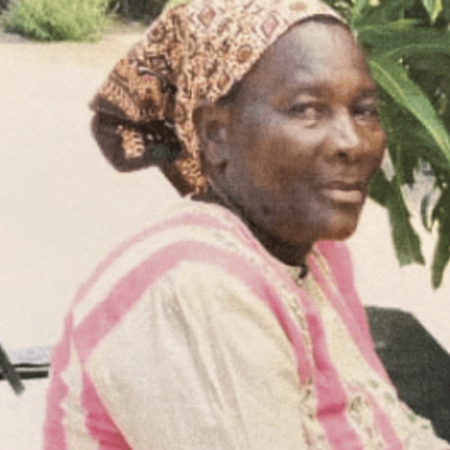
Eulalia Fernando Baptista est une veuve de 60 ans et le seul soutien de sa famille de 8 personnes dans le district d'Inhassoro. En tant que vendeuse de poisson, Mme Baptista dépend de la bonne santé de la pêche artisanale. Lorsqu'elle a constaté que le déclin des stocks de poissons aggravait sa propre vulnérabilité, Mme Baptista est passée à l'action. Elle a organisé les négociants en poissons de la région en associations et les a encouragés à s'impliquer dans la gestion. Elle a ensuite fondé le Conseil communautaire de la pêche (CCP) à Fequete, l'organe de gestion communautaire avec lequel Rare travaille aujourd'hui.
L'approche de Rare repose sur l'action déterminée de pêcheurs et de travailleurs de la pêche comme Eulalia. En permettant la cogestion, les campagnes de changement de comportement de Rare ouvrent un espace aux membres de la communauté comme Eulalia. Rare a également travaillé avec les agences fédérales pour faire passer la réglementation REPMAR, contribuant ainsi à établir une cogestion communautaire des pêcheries. Rare a contribué à renforcer les relations avec le gouvernement, en développant la capacité des gestionnaires locaux à travailler avec les communautés et à soutenir leur participation active.
En conséquence, le CCP de Fequete et le gouvernement local ont élaboré ensemble un plan de cogestion qui comprend des propositions de limites pour une zone d'accès géré que la communauté supervisera, ainsi qu'une réserve d'interdiction de pêche conçue pour protéger l'habitat essentiel et permettre aux stocks de poissons de se reconstituer. Avec la délimitation officielle des premières réserves communautaires cogérées du Mozambique, Eulalia et sa communauté espèrent que leurs plans seront bientôt approuvés et mis en œuvre. Enfin, Rare a travaillé avec le CCP de Fequete pour renforcer la résilience des moyens de subsistance grâce à des subventions aux petites entreprises et à des clubs d'épargne, qui permettent tous deux à la communauté d'Eulalia de résister aux chocs économiques.
Eulalia est restée une voix active tout au long de ce processus, une dirigeante forte dont l'expérience en tant qu'acheteuse de poisson guide ses idées et dont la position en tant que femme dans des environnements de gestion dominés par les hommes ouvre la voie à une plus grande équité entre les sexes dans les pêcheries d'Inhassoro. Elle a été élue secrétaire adjointe du CCP et a représenté les négociants en poisson de sa province pour contribuer à l'élaboration des directives internationales de la FAO visant à garantir la durabilité de la pêche à petite échelle. En 2021, Eulalia a reçu le prix de la Fondation Sommet Mondial des Femmes (WWSF) pour la créativité des femmes dans la vie rurale.
